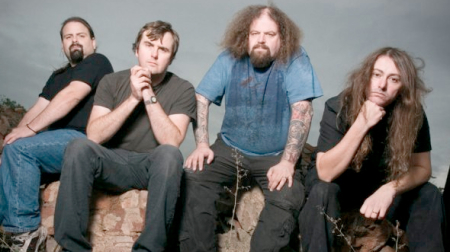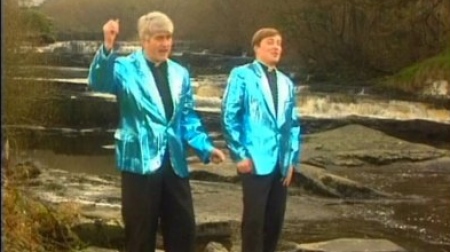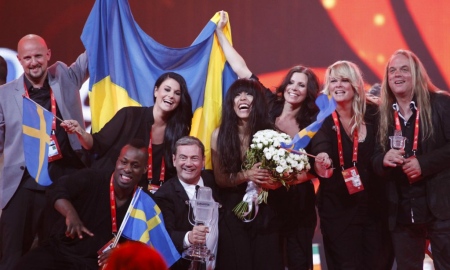In news that has shocked absolutely nobody, a cursory examination of Germany’s entry for 2013 (Cascada’s ‘Glorious‘) by people who understand musical theory has shown that it’s not a plagiarism of ‘Euphoria‘. Neither was it a surprise that countless people who should know better decided to jump on these (now-debunked) claims in the first place not because of study, but because they don’t agree with the song entering the Eurovision Song Contest.
Let’s start with the actual definition of plagiarism:
Noun: an act or instance of using or closely imitating the language and thoughts of another author without authorisation and the representation of that author’s work as one’s own, as by not crediting the original author. Synonyms: appropriation, infringement, piracy, counterfeiting; theft, borrowing, cribbing, passing off.
The key words that should be paid attention to include ‘closely imitating’, theft’, and ‘piracy’.
It’s nothing to do with ‘one song sounds a little bit like another song’, it’s not pointing out that a verse uses a few words from another song, and it’s nothing to do with having a Eurodance track in the year after there was a Eurodance track winning the Contest (seriously, just look back at how many songs following a winning song are amazingly in the same genre). Plagiarism is the wholesale lifting of someone else’s work and calling it your own. It is a serious allegation, and one that should not be thrown around casually because there are echoes of another song or artist that have influenced the newest work.
Building on the Foundations of Giants
Creativity builds on everything that has come before it. You can trace the evolution of music through the songs of the time, you can see artists that listen to the works of other artists and build on them. The explosion of rock in popular music in the seventies built on the experiences of the late sixties and the pop music artists stretching their wings, learning from each other’s influences and iteratively shaping new sounds.
Without Jimmie Rodgers, you wouldn’t have had Woody Guthire. Without Woody Guthrie building on Rodgers’s work, you have no American Blues. With no Blues, you have no Rolling Stones. With no Rolling Stones, you have no Yardbirds. With no Yardbirds, you have no Hendrix…and then where would music be? Every one of these greats built on what came before. But if you were to take the stereotypical Eurovision fan and drop them into Dingwalls in Camden for a few sets they’d be crying plagiarism in less time than it takes to listen to a Napalm Death track.

Napalm Death, who would struggle to write a three minute song…
To my knowledge, in the world of Eurovision there has been only a few case where the charge of plagiarism has actually amounted to more than frothy online discussions. One was Sweden’s 2001 entry ‘Listen to your Heartbeat‘ bore many similarities to the Belgian song ‘Liefde is een kaartspel‘ from 1996. After representations were made by the Belgian songwriters and SABAM (the Société d’Auteurs Belge – Belgische Auteurs Maatschappij), an out-of-court agreement was reached.The second was in the Lithuanian National Final of 2009, where Deivis’ song ‘Lietuva‘ bore all the hallmarks of The Las ‘There She Goes‘, and was disqualified after winning the televised Quarter Final after everyone watching pointed out the obvious (seriously though, nobody spotted this before it reached the air?)
Oh, and the arrangement of ‘My Lovely Horse‘ sounds remarkably like the b-side from Nin Huegen and the Huegenotes’s entry for Norway’s Song for Europe in 1976. But, like most myths around Eurovision, we can blame the writers of Father Ted for that, and not real life.

Those jackets look a bit familiar…
All right, guys, uh, listen. This is a blues riff in “B”, watch me for the changes, and try and keep up, okay?
I enjoy listening to a new song for Eurovision, be it the reveal of the songs in the National Final, sitting down to take in the winning song of a heat I’m not completely focused on, or the rush of an internal selection, knowing everyone on the net is racing to listen to it. What I don’t like is the very short time it now takes for the rumour mill to find a tenuous phrase from an obscure Captain Beefheart B-side and declare that the new song must therefore be cast out and banished from popular culture lest it pollute some sort of Eurovision-inspired innocence.
I’m not quite sure what people would think if a country sent a genuine blues song to the final. Because of the style of the music, based so much in patterns and consistent rhythm of structures like the 12-bar, 16-bar, and 32-bar blues, the unfounded accusations would be flying… while people who understand music would take a listen and go ‘it’s the blues, what do you expect?’
In all the fuss over the Glorious/Euphoria non-story, the key quote for me is from Thomas G:Son.
It’s not plagiarism to us, however. When you would look at the composition in a wavetable, you would see that 10,000 pop songs have similar courses.
If anyone would know if someone had lifted his song, it’s the original composer.
Stormvind Av En Teacup?
And don’t certain Eurovision fans expect to hear the same thing every year? Don’t they want their slow opening, a big brash chord, two verses and two choruses, a bridge, a key change, and the chorus once more to close out the three minutes? Every year? If the music sounds the same, but the words are different, would they call that plagiarism… or just ‘another fabulous schlager classic”?

Should Sweden send the same style of song every year?
It’s time for fans of the Contest to stop instantly labelling ‘similar’ as ‘theft’. Music is a rich tapestry of emotion, colour, sound, beats, rhythm, and style. But it’s a tapestry with only a handful of notes, a finite time limit, and a lot of expectation, style, and similarity within itself. These should all be embraced and understood before pointing fingers at the creative team behind a song.









I completely agree Ewan, and feel that at this point that if a song actually was plagiarised and sent to Eurovision, I wouldn’t even care as I’ve become so desensitised and apathetic to all these claims of plagiarism.
I maybe right off the mark. But wasn’t a song that was clamed to be a rip off, the ebu had said (basically). Sort it out in court, if they deem it not to be a rip off, then it’s more then welcome to used at the contest.
(I’m sorry if this case was said in the article above. I just vaguely remember reading it somewhere ages ago and can’t remember the exact details to save my life).
There was Matt, and this was a sensible way to do it – ie get a legal opinon and we’ll abide by it. Name escapes me as well.
Which is why it’s such a dangerous route of conversation to go down.
It has reached the point this year where as soon as a song wins a national final or is revealed to.the public someone goes “it’s a rip off of…..”. It’s getting out of hand and becoming frankly stupid, like Gson says there are always going tone similarities. People are way to quick to accuse an artist and song , they need to step back and actually appreciate the music and the contest. I am very glad that Ewan you have said something about this, maybe just maybe there ate more people out there who have common sense.
I totally agree that it’s not plagiarism, but I do think it is clear that they have, probably intentionally, used “Euphoria” as inspiration for the song. It’s so, so close to “Euphoria” structurally that it cannot be accidental. And yes they have always done dance music, but I am very familiar with their previous work and none of their previous songs sound this similar.
I don’t have a problem with the song though – it’s done extremely well and right now it would be my tip to win.
I don’t have a structure issue. Look how structured the Schlagerboys sound is that certain fans expect to hear every year. Should we tar those songs with the same brush?
Agreed on tip to win as well, at the moment.
I still stubbornly maintain that the arrangement of Glorious veers annoyingly into Euphoria-soundalike territory – moreso than can be explained by their both being Eurodance tracks.
But that’s not the same thing as plagiarism. Because if it is, Abba owes Phil Spector a heckuva lot of money in royalties from Waterloo (and don’t even get me started on “Take Me To Your Heaven”).
To paraphrase Steve Allen, “Imitation is the sincerest form of Eurovision”.
Ewan, I swear Belgium was involved in the court case, that i referred to. I just can’t remember if was for the calling foul or the one having the finger being pointed at and been called cheaters.
I hope someone can help because this case is an example of how to sort this type of mess lol
Sweden 2001 was accused of plagiarism and had to be settled in court, was that the one you’re thinking of? 😛
Ugh, this one was so weak as well.
Let’s see how many forget the “another author” part as well by, let’s say, today, for example.
Besides, just recognising something *as music* is all the proof you need, right? :/
See, the way you feel about plagiarism claims from people less musically educated than you? That’s how linguists feel about your use of “Stormvind Av En Teacup” and the entire “translation” of the G:son quote in this piece. What winds up one man in his particular field of expertise can be entirely irrelevant to the next man.
Touche ‘Rambo’, touche!
Ewan – yes, we should tar them with the same brush.
But in my opinion this is a calculated copy of the “Euphoria” template.
This is not the first time Cascada have done this by the way. “Evacuate The Dancefloor” was “Just Dance” and “Pyromania” was “Poker Face”.
I actually applaud them for it though because once again they’ve pulled it off and come up with a great song. I still wouldn’t call it plagiarism, but it is clearly not similar to “Euphoria” simply because Cascada do dance music.
@ James, I’m not 100% sure because I’m trying to recall it from memory….. with no aids (and that is not easy for me). So there would be holes in the story.
Just remember people, this is a contest. Of course Cascada’s song is using the Euphoria template and structure, but their reasons for it are fairly simple; Euphoria won, its success has been proven.
Remember 2007? After Lordi’s win, a lot of countries sent rock songs, it created a trend. That’s how it goes in popular music, just look at any country’s hit parade.
Cascada’s Glorious is a case of opportunism, the kind of which contributes in the constant evolution in all aspects of pop culture. And it’s a contest, so why not?